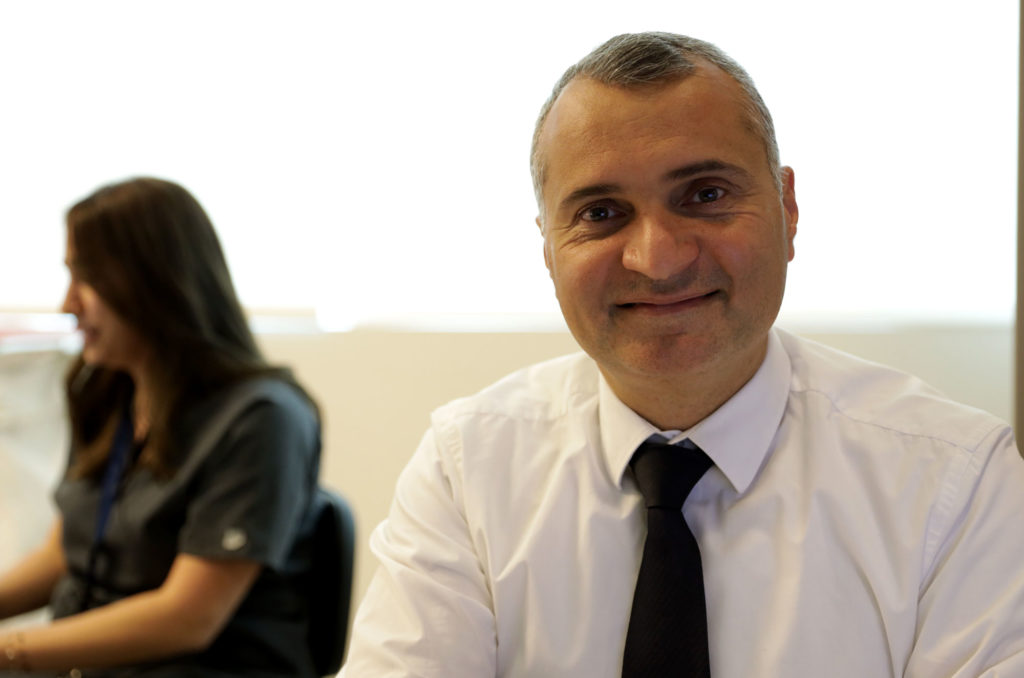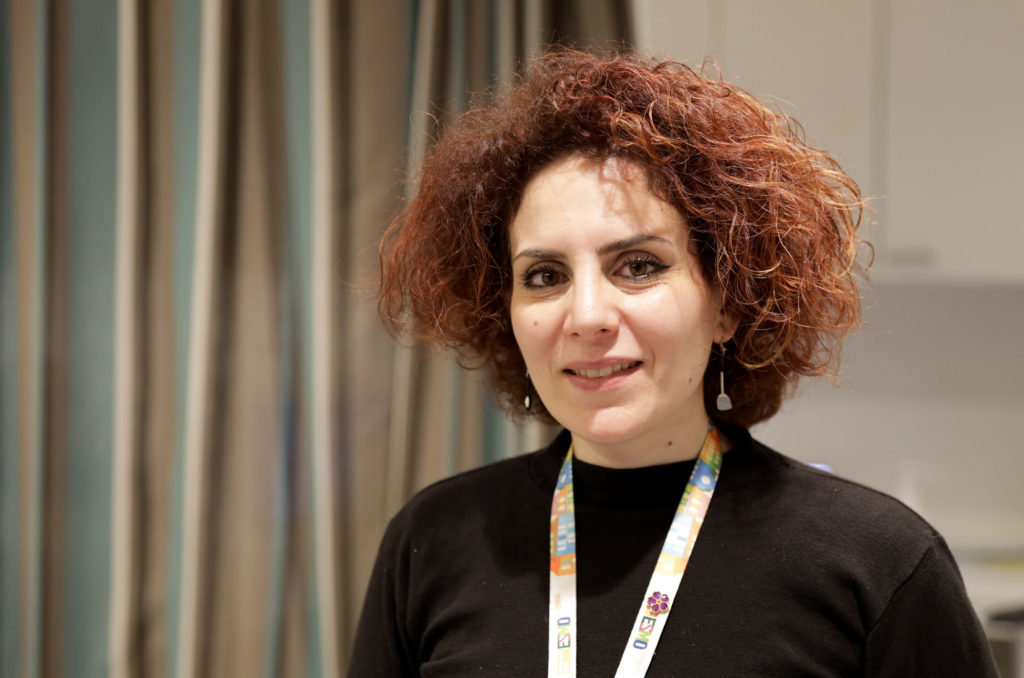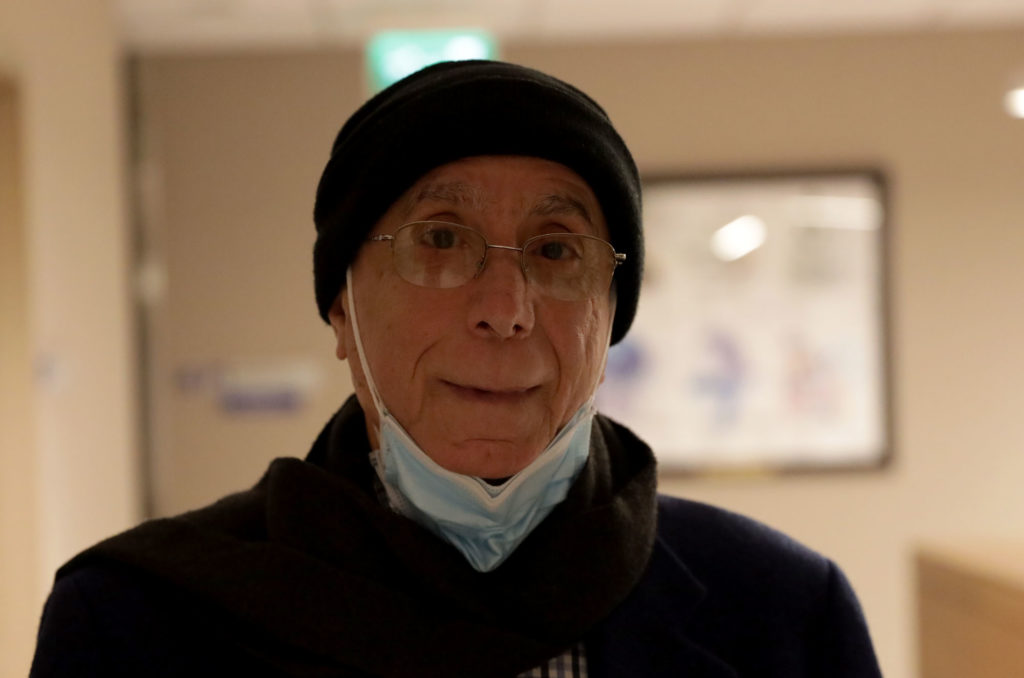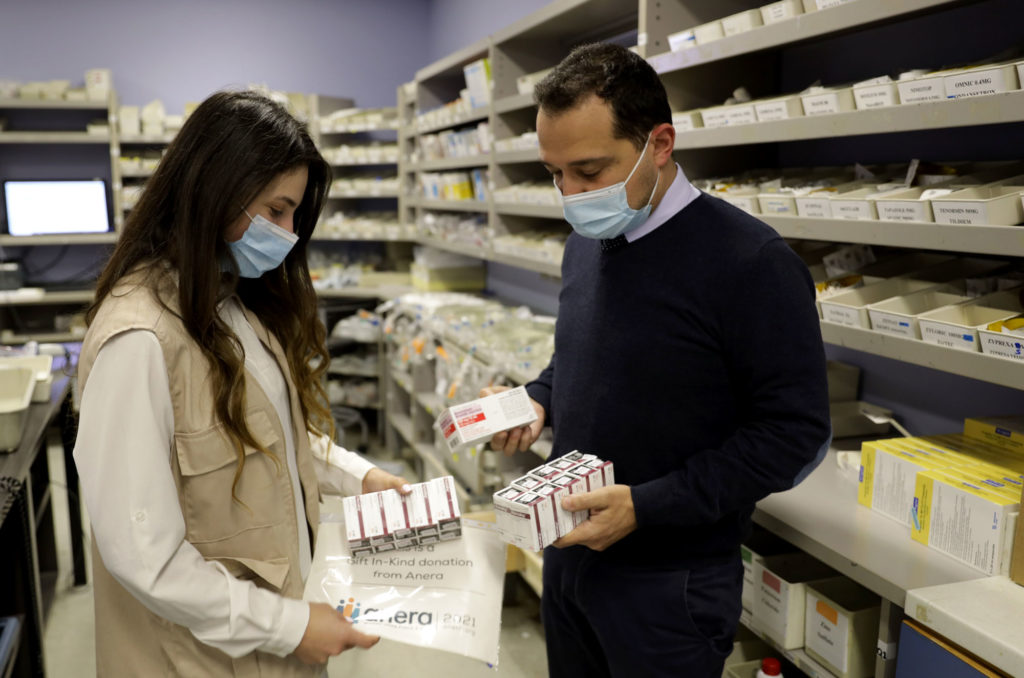May, 2022
What if Your Cancer Medicine Was Not Available?
“Medical shortages are all too common during Lebanon’s economic crisis," explains Hazem Assi, a physician in the Hematology and Medical Oncology department at the American University of Beirut Medical Center (AUBMC).
"Despite the efforts of the health ministry, medications cannot be purchased in the needed quantities because of soaring prices."
In practical terms, he says cancer patients may have to skip treatment for one or two months due to the unavailability of the medicine.
"This has severe effects on the patient’s health," he says, "and can be life threatening because cancer treatment depends on consistency, sometimes for long periods.”
Lebanon's economic collapse has had a far-reaching impact on the country’s health sector. Cancer treatment is no exception. Eighty percent of Lebanon’s medicines and supplies are imported, but suppliers no longer have enough foreign currency to buy what they need. Pharmacies, hospitals and clinics have reported a shortage of cancer medications. Some patients are getting only intermittent treatments. Others have no access to treatment at all.


“Cancer treatment is very delicate and alternative treatments are not easy to find,'' explains AUBMC chief nurse Wafaa Skaff. "The patient’s biggest battle against cancer is time. That is why it is crucial to secure medicines and maintain a consistent timeline for treatment."




"The patient’s biggest battle against cancer is time. That is why it is crucial to secure medicines and maintain a consistent timeline for treatment."
Thanks to a donation by Direct Relief, Anera has been able to distribute a substantial supply of anti-cancer and insulin medications. The medications are an essential part of a new biological therapy for cancers like melanoma, leukemia, and solid tumor cancers such as lung cancer.
The donated medicines were distributed to medical centers via governmental hospitals across Lebanon as well as AUBMC’s Naef K. Basile Cancer Institute, Psychiatric Hospital of the Cross, Health Care Society, Children's Cancer Center, and Chronic Care Center.
Without the specialized medicines, cancer patients faced a very uncertain future.
Assi says it is painful to watch his patients suffer needlessly. “There were two cancer cases I oversaw where the patients were unable to purchase certain medications and had to discontinue treatment. Their health deteriorated rapidly and led to their death, something that was painful for the families, but also for the staff involved in their care.”
He says the donated medicines will help save or extend the lives of cancer patients and reduce the fear of living with uncertain, irregular treatment.
“Chemo costs me $400 USD on the black market, but with the depreciation of the currency and my reduced income, it is beyond my reach," says 70-year-old Mousa, who is benefitting from the donated medicines. The cancer patient has tried to stay positive but he knew his survival depended on the availability of cancer medication, which the government had been unable to secure.
Chemotherapy treatment is meant to be administered on a regular schedule but has often been disrupted as the economic crisis deepens.
Assi says the shortage of medications extends beyond the more expensive pharmaceuticals. “It is also hard to find affordable medications dubbed essential by the WHO which are needed for treatment.”
Mousa knows that from personal experience. “Medication for my immunity has been hard to find and, despite my insurance, the government is unable to supply my anti-cancer medicines. I’ve had to postpone treatment sessions due to unavailability. Isn’t it enough that the crisis has taken away our security, basic needs, livelihoods, and public services, and how it's affecting our health too?”




"I’ve had to postpone treatment sessions due to unavailability."
The crisis also has affected the staff caring for cancer patients. Skaff explains that “The multiple crises we experienced in the past couple of years have been overwhelming for the staff and patients on personal and professional levels. This adds to the pressure and stress of dealing with both their personal concerns and their patients.”
The Lebanese Ministry of Health had provided cancer medication at affordable rates but now the medicines are not even available. Assi says donations from Anera are key to continuing health services since the government is unable to adequately provide what is needed.
“AUBMC was among the leading cancer treatment centers and now we depend on donations to continue our services. We couldn't do this without Anera’s help.”




